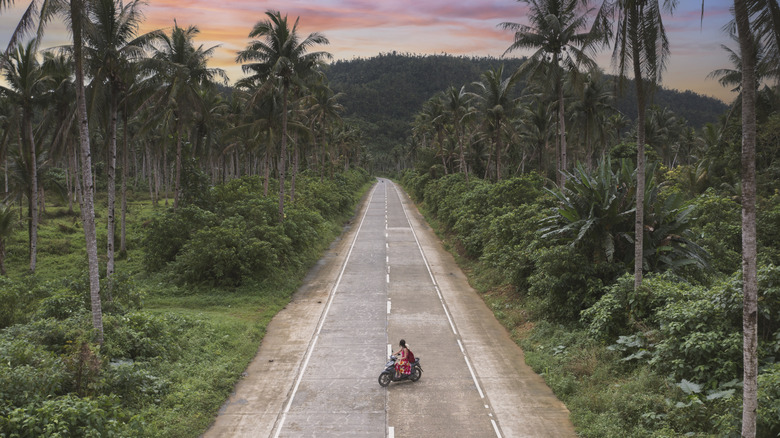Digital Nomads Are Flocking To These Surprisingly Affordable Cities As Popular Hubs Grow Too Expensive
Digital nomads previously enjoyed low costs of living and the relative anonymity of working in cities like Mexico City and Buenos Aires. But word of mouth (and social media) has played a part in rendering these idyllic working hubs unsustainable. Great as they were for building a sense of community amongst remote workers and for drumming up the local economy, their growing popularity came with the painful prices of soaring rent, inflation, and gentrification, resulting in a lifestyle that is less affordable than it previously was. The growing number of digital nomads worldwide — about 40 million as of 2024 — prompts the question: what new frontiers are the remote workforce setting their sights on? Digital nomads around the world have weighed in on their preferred locations, citing Quito, Tokyo, and Montreal among their choices of affordable places to combine work and travel.
Popular travel destinations do not automatically translate to remote work havens: In fact, these could even end up being among the worst countries for digital nomads. While most remote workers flock to a country's major city almost reflexively, the savvier ones are setting their bags down in smaller areas an hour or two away from the capital for cheaper rent and a more authentic experience. Taking affordability, internet access, visa restrictions, and community into consideration, these unexpected places are emerging as crowd favorites.
Tokyo, Japan
Tokyo has long had a reputation for being one of the most expensive cities in the world. While this was true in the '80s, the city ranked 49th of the world's most expensive cities, according to Mercer's Cost of Living City Ranking 2024. Aside from safety and great transportation links, Japan also introduced a designated activities visa for digital nomads in 2024, allowing certain nationalities to stay in the country for 6 months — making this Asian island nation an ultimate destination for solo travelers and nomads.
Compared to other Asian countries, rents in Japan are still quite high, but its infrastructure more than makes up for it. "Since the yen dropped, Japan might be the cheapest developed country out there," says u/D0nath in a Reddit thread discussing Japan. U/dannythethechampion agrees, writing: "I live in a new and beautiful fully furnished apartment which [is] in a nice area of Shibuya and my rent is 1200 USD a month. It's also a short-term rental. Not something I would call soul-crushingly expensive." Another commenter chimes in, "Japan isn't that expensive ... Food, transport, utilities have been cheaper than in most destinations I've been to. Even most accommodation has been cheaper than in other top 20 touristy countries." No wonder Japan ranks highly on digital nomads' lists of most-liked countries.
Portugal's coastal cities
Portugal is yet another country that counts as one of the top remote working destinations, especially after the introduction of its Remote Worker D8 visa in 2022, which allows digital workers to stay in the country for at least one year. But with Lisbon's higher rents and cost of living, digital nomads are gravitating toward the country's coastal cities like Porto or Algarve.
According to Numbeo, rent prices in Porto are 26.7% lower than in Lisbon, and daily costs are down 9.2% from the capital — a comparison felt strongly by the digital nomads on the ground in Lisbon. "The cost of living has been steadily rising due to demand and gentrification, Besides, winters can be terrible with old, drafty apartments with poor heating systems," says u/happy_songs. It seems like those based outside of Lisbon agree. "Move an hour drive out of Porto and you can find tons of decently sized places in the $540 to $750 range," says u/HighwayStriking9184. Meanwhile, the Algarve has also caught the eye of digital nomads. In addition to its seaside village appeal, pristine beaches, and endless fresh octopus, rents come in at about $1,100 to $1,700.
Cebu and Siargao, Philippines
While rent prices in Manila, Philippines are about 15% lower than in Bangkok, a fellow South East Asian country (and digital nomad crowd favorite), digital nomads suggest giving the city's capital a miss due to its expensive electricity and internet access and its poor infrastructure. If the Philippines is on your digital nomad radar, head to the islands. Cebu City, located in the central region of the Philippines, offers a refreshing coastal environment without sacrificing the cosmopolitan lifestyle. Rents here are almost 40% lower than Manila, but venturing just 2 hours away to a more rural area will yield even cheaper rents and a much more peaceful lifestyle, if that's what you're looking for.
Siargao, a southern tropical island that's a surfer's paradise best known as the "Bali of the Philippines" is another hidden gem that's attracting a fair share of digital workers. Since the arrival of Starlink in the Philippines in February 2023, internet access from this remote island has gotten better. A long term, one-bedroom apartment can set you back a mere $400 — not so bad for a place where $950 can sustain a month's cost of living. Determined to bank on the almost 10% increase in foreigners visiting the Philippines in 2024, the Government of the Philippines introduced a bill in February 2025 for a proposed Digital Nomad Visa.
Montreal, Canada
Its vibrancy, cultural offerings, affordability, and dependable transportation system are among the main draws of Montreal as a digital nomad destination. Expect to shell out $980 – $1190 for a centrally located one-bedroom apartment, which is fairly cheap compared to other major cities like New York or Toronto. "I really am surprised that all the world's digital nomads haven't descended on Montreal yet and blown up the prices the way they've done with Lisbon," u/ReflexPoint muses. "It's not exactly a secret that it's cheap (for North America) and awesome."
A former student in Montreal who returned to the city as a digital nomad says: "Reasonably priced compared to the major cities in Canada and the US. Great food. An interesting blend of French and regular North American culture. I could get anywhere I wanted to go with the metro and walking." Since 2016, Montreal has been fostering and encouraging its burgeoning digital nomad community through Nomad Coliving, the first co-living space in Canada. Entry to Canada is relatively painless, with the country offering digital nomads half-year stretches in the country without a work visa.
Quito, Ecuador
A surprising destination mentioned by several digital nomads is Quito, Ecuador. Digital nomads are drawn to the city for its affordability, and the Ecuador Digital Nomad visa, rolled out in 2022 post-pandemic and offering a one-time renewable validity of two years. This combination helps to make Quito quite an attractive location for the curious and adventurous. "It is very affordable," a Reddit user confirms. "I was nomading there on $3000 a month. And that's with everything included — fancy furnished condo overlooking Carolina Park in Quito, eating out regularly, paying for both people on dates, one to two country weekend trips, partaking in numerous activities, etc. Same lifestyle back home would have run me $7000."
According to Numbeo, one-bedroom lodgings can cost $455, with basic utilities costing about $80. Total living expenses for an individual can come in at about $1000. Though safety is a common and valid issue, digital nomads with first-hand knowledge of the city mention that crime, like in any major South American city, remains quite localized. Another setback for digital nomads to consider when heading to Ecuador is the city's constant power cuts, though this issue has been steadily improving since the end of last year.





